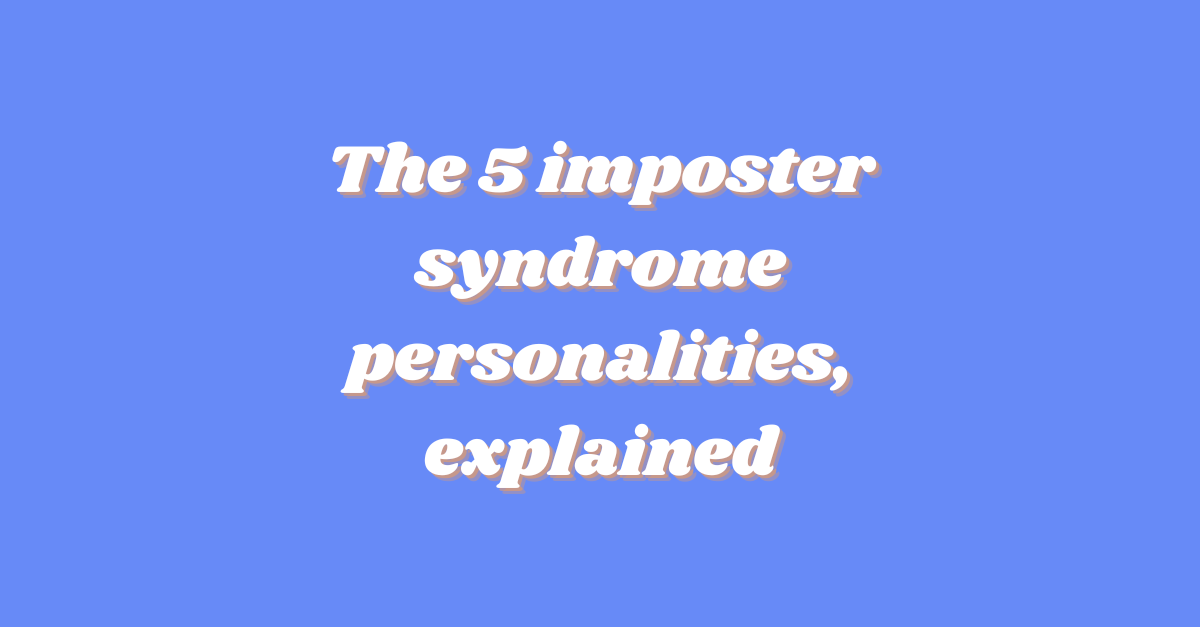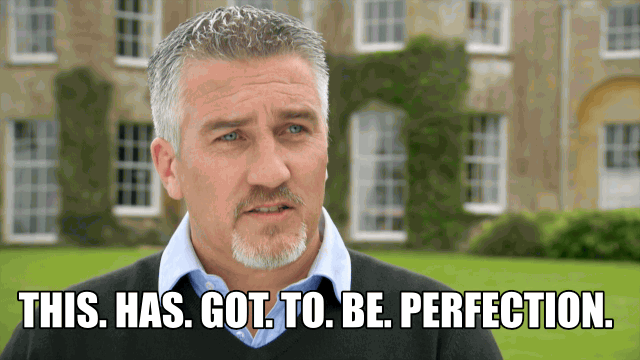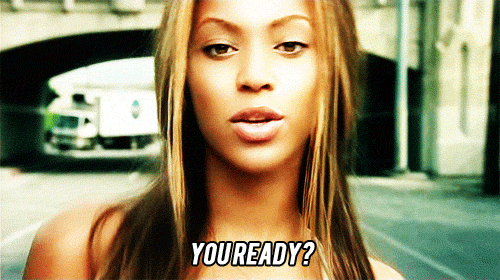Imposter syndrome affects pretty much all of us at some point in our lives — but how it shows up varies from person to person.
Think about it. Maybe your partner is baffled as to why you get so panicked about speaking up in meetings. But you can’t understand why they make such a fuss over kneading their sourdough.
A researcher, Ted Talk speaker and global expert on imposter syndrome called Dr. Valerie Young has a theory on why this is.
The 5 types of imposter syndrome and how to work out which one you are
Imposter syndrome (or what we like to call “imposter feelings”) is a sense of self-doubt or incompetence around our skills, capabilities and even our entire identity. It’s when this insecurity gets so bad that we feel like a fraud or an “imposter” — that it’s only a matter of time before we’re “found out”.
According to Dr. Young, these imposter feelings can be triggered in slightly different ways for different people. She categorises how they manifest into five imposter syndrome personality types: the perfectionist, the natural genius, the rugged individualist, the expert and the superhero.
Before we dive into what they mean and how to work out your imposter personality type, it’s worth pointing out that, much like love languages or TA drivers (lots of parallels between these and imposter personalities, btw), most of us are a blend of a few. So if you find yourself thinking “that’s me!” for all of them, that’s very normal.
Humans are complex, messy beings that can’t always be put into neat boxes, however much we try.
But reflecting on your behaviours and emotions is always a valuable exercise, so you might find these personality types a helpful guide in navigating imposter syndrome.
Let’s unpack them and see which ones you relate to:
1. The perfectionist
Perfectionists set themselves very high standards and expectations. They feel pressure to do everything flawlessly, and tend to focus on the negatives and small details, rather than the positives or the bigger picture.
How to tell if that's you: small mistakes and losses feel like huge failures. Even if you meet 99% of your targets, you'll only focus on what went wrong.
2. The Natural Genius.
The natural genius was always top of their class and growing up, success came easily to them. This can get difficult in adult life, when they can’t always get by on innate intelligence or talent alone, and markers of success are more subjective.
How to tell if that's you: you feel that you aren't good enough if success doesn't come easily or you have to work hard/struggle to achieve something.
3. The Rugged Individualist.
Rugged individualists are self-sufficient or independent types, who see asking for help as a weakness — they worry it reflects badly on their skills or talent.
How to tell if that's you: you never ask for help and only see something as a success if you've achieved it by yourself.
4. The Expert.
Experts like to do things from a place of knowledge or expertise, so they'll usually spend a lot of time researching and gathering information before starting anything new.
How to tell if that's you: you don't apply for jobs unless you meet all the criteria, you don't speak up in meetings unless you feel completely confident in answer — you need to feel super informed, prepared and practiced for everything.
5. The Superhero.
Superheroes push themselves to achieve in every aspect of their lives. They want to work harder than anyone else to prove themselves worthy.
How to tell if that's you: you feel an overwhelming need to be good at everything and are really hard on yourself if one area of your life isn't as strong as the rest (e.g. work vs home life).
Do any of these personality types (perhaps more than one) resonate with you? Let us know in the comments.
How to overcome imposter syndrome, according to your personality type
We’ve spoken before about how pathologising feelings of self-doubt isn’t always helpful. Because sometimes, we have very good reason to doubt ourselves — maybe we are facing a really big challenge, dealing with a stressful situation or genuinely aren’t ready for something.
On the flipside, imposter feelings can be intrusive, unhelpful and hold us back from realising our full potential, celebrating our wins or taking a risk.
The idea behind the imposter personality types is that they help you get to know yourself. That way, you’ll be in a better position to understand what those feelings are trying to tell you. Should you listen to them and do more prep for that big meeting, or do you need to ask your inner critic to pipe down?
If it’s a case of the latter, here are some tips for each imposter personality type that might help:
The perfectionist: try reframing how you see failure. Rather than seeing it as a negative or the end of the world, can you approach it with a bit more lightness? In the long run, is it a positive because you can learn from it?
It might also help to give more attention to your successes. Try keeping a log of positive feedback, compliments and achievements (big and small). Then look back at this when you’re being down on yourself.
The natural genius: try focusing on the journey, rather than the end goal. Most people who are really successful in their field don’t become that way overnight. It takes practice, experience, and sometimes years of failed attempts before they get there. This is where mentorship could be really useful, as you’ll have someone who can share their own journey with you.
The rugged individualist: practice makes perfect progress! If you struggle to ask others for help, start small. Maybe that’s getting a colleague to cast an eye over a deck before you present it, or even asking your partner to hang up the laundry when you’re strapped for time. Making more of a habit of it can slowly start to shift your mindset, so you don’t always see it as a weakness.
You might also find it helpful to join communities and support networks in your field, whether that’s for work, a hobby or an interest. Seeing other people helping each other out might offer some inspiration.
The expert: when possible, try approaching things with a blank slate, without having done loads of prep or research. Again, this could be small — maybe showing up to a meeting ready to learn from a colleague, rather than being the expert yourself, or even trying a new hobby. Activities that require improvisation or learning on-the-go could be really eye-opening for expert types.
The superhero: superhero types will probably benefit from slowing down and incorporating more rest into their schedule. Do you really have to do that HIIT class before work, or would you benefit from a gentle walk or a lie-in instead? You might also find it useful to explore your relationship with external validation, so you can redefine your relationship with success.
Remember, these feelings and behaviours are often deeply ingrained, so change doesn’t happen instantly. But simply acknowledging what’s true for you is a great place to start.
We publish a new post designed to boost your self-awareness every week, so don’t forget to subscribe if you haven’t already.






